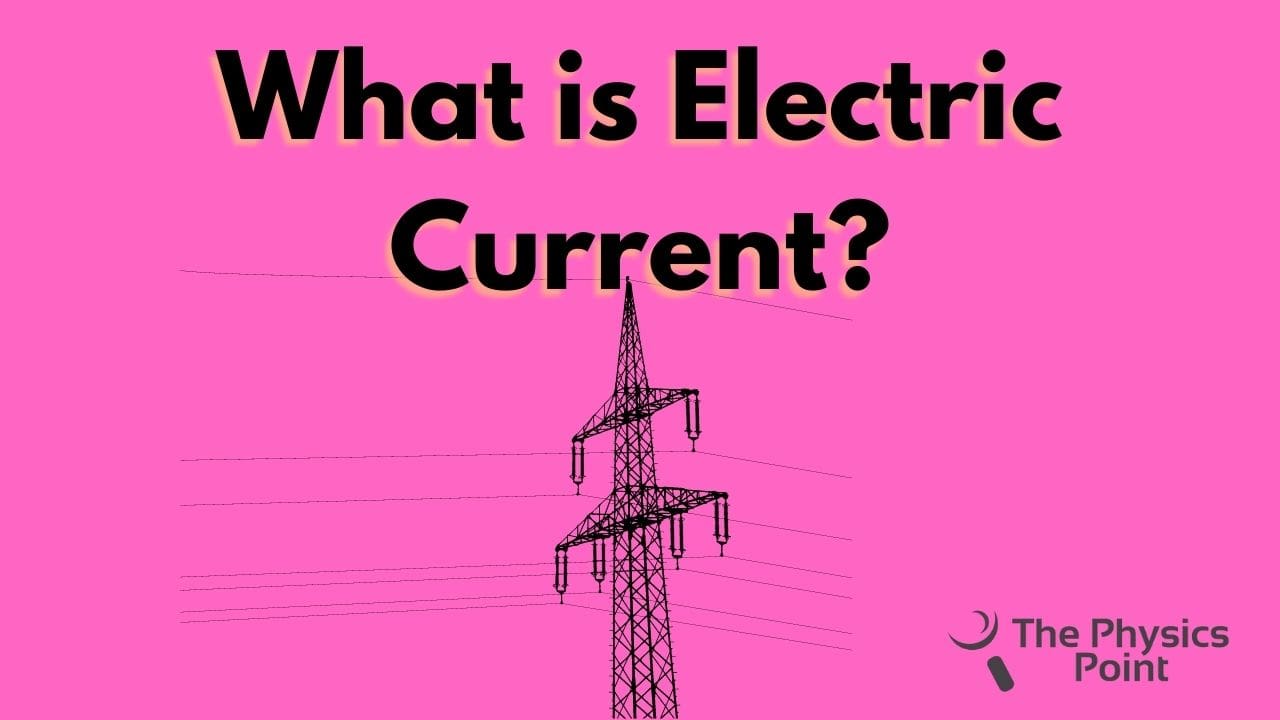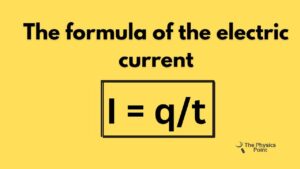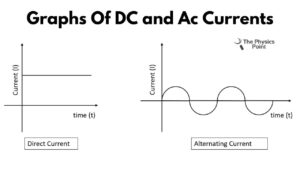What is Electric Current? Definition, Types and Unit

Hello, how are you guys? Welcome to our physics website. The topic of today’s very important – What is Electric Current. Current is a very important factor in today’s era. Every electronic device works only due to the current. Without current, you are unable to read even our article. So I hope you have understood the importance of current. In this article what is electric current? we will tell you everything such as what is an electric current definition, and what is electric current in physics, from basic to advanced levels. So just wait and read the whole article from start to end.
Some very important questions from the exam point of view and the competitive exams such as What is Electric Current, types of electric current, electric current, what electric current, current definition electricity, current electricity definition, what is dc current and AC current, the heating effect of the current, etc. You must read the whole article to understand these important questions very well. If you want a good understanding of physics you can read our previous articles on our website also let’s start our today’s important article what is electric field?
What is Electric Current (Definition)?
The rate of flow of charge in any conductor is called as electric current. we can say this in another type that the charge flowing per second in any conductor constitutes. An electric current is flow of charge. The current is represented by the letter I. A negative charge flowing in any conductor decides the direction of the current. it means the current is flowing in the direction of the electron and in the opposite direction to the positive charge flowing.
In any conductor, only the free electron contributes to the development of a current. The free electrons are those electrons in the conductor which are loosely wanted to the nucleus and they are able to travel in the conductor within the limits. The charge particles flowing in the conductor are only possible due to the potential difference. for creating the potential difference we need a battery or any Energy source that produces voltage.
There are some types of metal that allow the electric current very rapidly and some other types of metals which allow the electric current in a very low amount. On the basis of this current flown, the metal is divided into two types – the conductor and the insulator. Conductors are those metals that allow very little resistance and rapid electric current inside them While insulators are those metals and very little amounts of current inside the.
Examples of conductors are the aqueous solution of different salts, iron, gold, and silver as well as the human body also, etc. Examples of insulators are wood, glass, and plastics.
The formula of the electric current is given below –
I = q/t
Here,
- I is electric current
- q is the charge
- t is the time

Unit Of Electric Current
The SI unit (Internation system of the unit) of an electric current is the Ampere. It is represented by the letter A. One ampere is defined as if one coulomb of charge passes through a point in one second then it is considered as 1 ampere current. The electric current is the tensor physical quantity but for numerical solving be considered as a scalar quantity. You should know that there are 6 x1018 numbers of electrons in one-coulomb charge that constitute 1 ampere current.
Types of electric current
The current is divided into types On the basis of how they flow-
1. Direct current
It is also known as DC current. This current flows only in one direction. The batteries which we use in our devices such as laptops, mobile, calculators, etc are produced DC current. The main advantage of this current is that we can store this current in our batteries. this current is not dangerous for human beings like AC current.
2. Alternating current
This current is also known as AC current. this current flow in both directions means it flows to and fro. If we draw the graph of this current, we found that the graph is in a sine wave. The current which comes into our house from the powerhouse is the AC current that changes its direction 50 times per second. it means that the frequency of this current is 50 hertz.

Some effects of electric current
When the current flow in any circuit, it shows some effect which is described below-
Heating Effect
when an electric current passes through a circuit or any conductor the heat is generated in that circuit or conductor, this is known as the heating effect of the electric current. The iron box on this principle. We use iron boxes for making our clothes uncrumpled with the help of heat generated by the current in the conductor of the iron box.
The formula to calculate the heat in any circuit is given below –
H=I2RT
Here,
- I is the current
- R represented the Resistance of a wire
- T represents time.
Magnetic Effect
When a current passes through a circuit or any conductor, the magnetic field is generated around the conductor. By placing a magnetic compass near the wire which carries DC current the observed magnetic field. In the magnetic field, the magnetic compass needle fluctuates. If we wind the wire in the shape of a coil with many turns, the magnetic effect increases and the coil works like the electromagnet.
Chemical Effect
At the time when an electric current passes from water or any solution, the solution ionizes and its breakdown into the ions which it constituted. Different types of solutions so the different types of chemical effects. We can observe this phenomenon by some observations such as changing the color of that solution metallic deposition on the electrodes production of some releasing of any gas from the solution. Electroplating and electrolysis are very famous applications of this chemical effect of the electric current.
Conclusion
In today’s article what is electric current, we told you every possible thing about electric current such as the definition of electric current, the definition of electric current, what is electric current unit, the current physics definition, and the definition of current in physics. These are very important points. You can also share this article with your friends if you like the article. for any query or suggestion, you can comment to us. Thank you!
